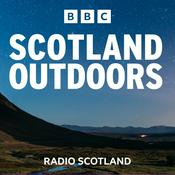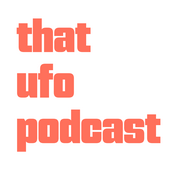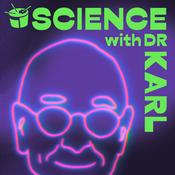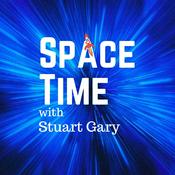10 episodes

PREVIEW: CHAPTER 3: The Dance
17/3/2025 | 1h 14 mins.
Philosophy and science share a common commitment: seeking truth, along with a willingness to upend one’s intuitions in order to accept an answer that might feel uncomfortable or counterintuitive. The relationship between philosophy and science is like a dance—philosophy poses questions that help steer the science, and science makes discoveries that inform or overturn the philosophy. In order to think more deeply about the hypothesis that consciousness is fundamental and help guide the philosophy, Annaka needs to better understand the physics and the different interpretations of quantum mechanics. So in Chapter 3, she speaks to three physicists—Sean Carroll, Brian Greene, and Janna Levin.

PREVIEW: CHAPTER 8: Space and Time
17/3/2025 | 1h 25 mins.
In this explosive episode, Annaka explores her curiosity about space, how it's constructed, and what the experiences of space might represent in reality. Annaka—initially skeptical about the significance of subjective experiences in meditation—was surprised to find these experiences can potentially reveal deeper insights into reality and scientific truth. Through her collaboration with neuroscientists, she learned our reality is largely indirect, often described as "controlled hallucinations," according to Anil Seth. However, disciplined attention to our immediate experiences can sometimes alter our perceptions of space, time, and self, offering a potentially clearer view of reality. Annaka's interest in quantum physics, especially theories proposing that space and time are emergent rather than fundamental, paralleled her meditation experiences where consciousness transcends these constructs. This leads her down a path of jaw-dropping exploration about the true nature of space, time, and reality.

PREVIEW: CHAPTER 6: From Signals to Sensations
17/3/2025 | 45 mins.
Tools like microscopes uncover vast worlds that were previously hidden from us—we could hardly grasp the reality of invisible organisms before the microscope allowed us to perceive them, let alone the realms that have been revealed through telescopes and particle colliders. What tools might we discover in the future to help us reach beyond the familiar experimental neuroscience that Anil Seth and others have relied on so far? We have many intuitions for the laws of physics because we feel them at work through our senses. In Chapter 6, Annaka contemplates where sensory addition work, like David Eagleman’s, might lead. We also explore the ways science might expand in order to address questions about consciousness, as well as about fields, forces, and matter we don’t naturally perceive.

PREVIEW: CHAPTER 7: Memory, Meditation, and Mind
17/3/2025 | 1h
In Chapter 7, we continue to peel back the layers of the construction of “self'” in the context of neuroscience. Annaka focuses on the role memory plays in both psychological continuity and in the feeling of being a “subject” of conscious experiences. This chapter also presents a deeper exploration of meditation practice in an attempt to get a clearer picture of our direct experience of consciousness and, thus, a more accurate framework for questions about how far down in nature consciousness runs.

PREVIEW: CHAPTER 9: Consciousness as Fundamental
17/3/2025 | 1h 4 mins.
At the heart of science, we face an utterly perplexing question: What is physics describing? What is it fundamentally about? What are the natural laws, laws of? From the perspective of physics, the fundamental stuff of the universe still eludes us, especially if we try to fit the findings of quantum mechanics into a traditional conception of matter and energy. From the perspective of neuroscience, we’ve learned that the world “out there” is not a direct perception, and our perceptions may have even evolved to hide the truth from us, as Donald Hoffman argues. And then from the perspective of the philosophy of mind, Annaka’s own research, reading, and further thinking leads her to believe that consciousness is more likely a fundamental property than an emergent one. Could this different approach help us answer the age-old question? And how would the sciences even attempt to move forward with the hypothesis that consciousness is fundamental? How might we conceivably acquire evidence or validate it experimentally?
More Science podcasts
Trending Science podcasts
About LIGHTS ON AUDIO DOCUMENTARY TEASER
Listen to LIGHTS ON AUDIO DOCUMENTARY TEASER, Futureproof with Jonathan McCrea and many other podcasts from around the world with the radio.net app

Get the free radio.net app
- Stations and podcasts to bookmark
- Stream via Wi-Fi or Bluetooth
- Supports Carplay & Android Auto
- Many other app features
Get the free radio.net app
- Stations and podcasts to bookmark
- Stream via Wi-Fi or Bluetooth
- Supports Carplay & Android Auto
- Many other app features


LIGHTS ON AUDIO DOCUMENTARY TEASER
download the app,
start listening.































